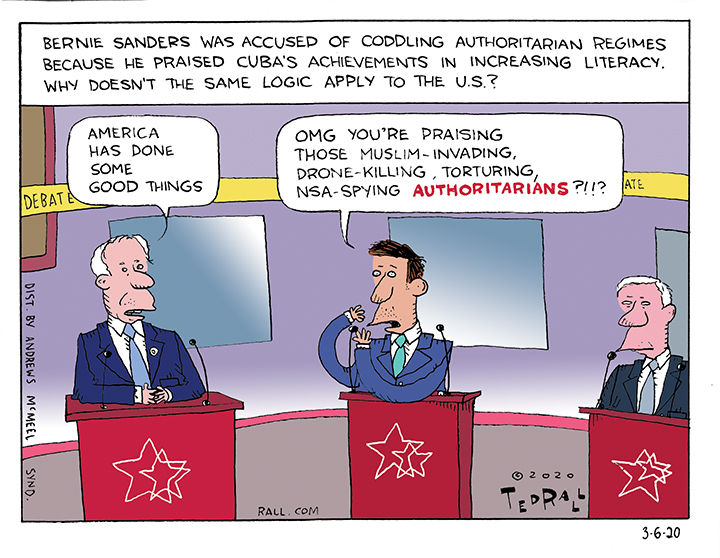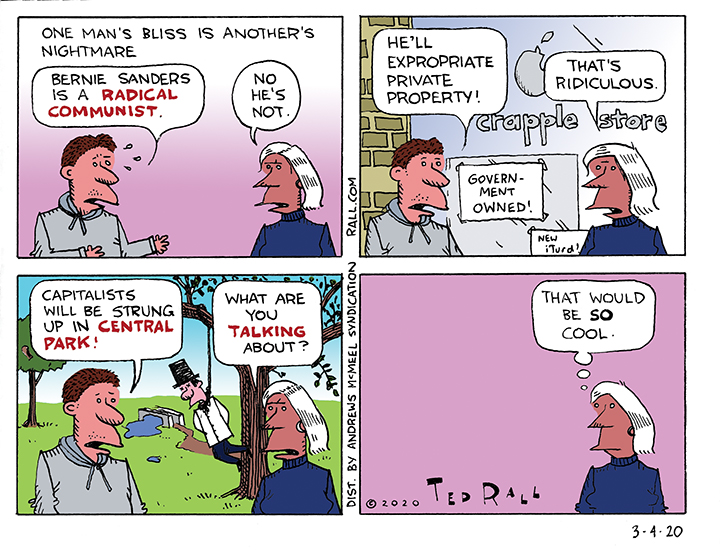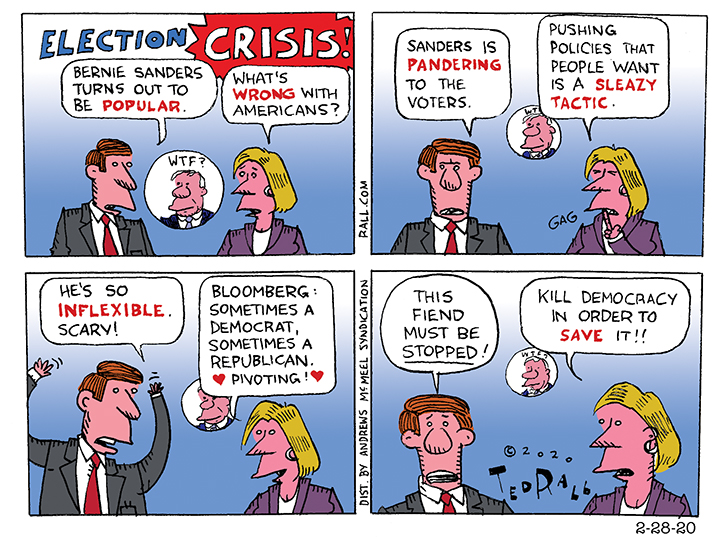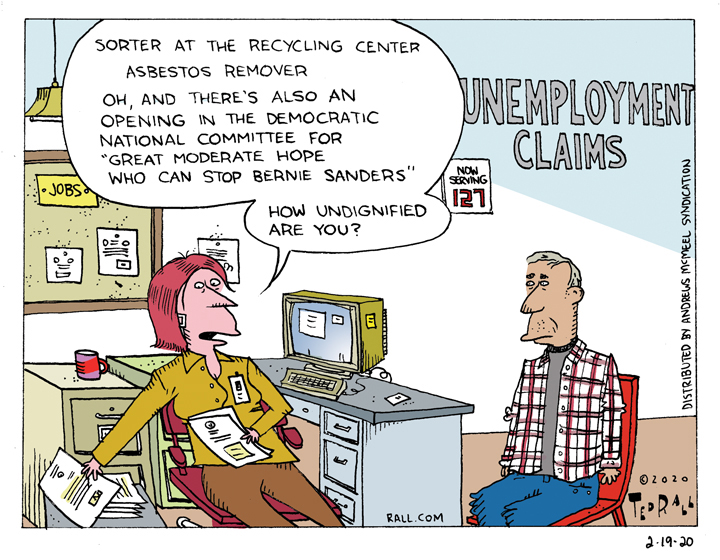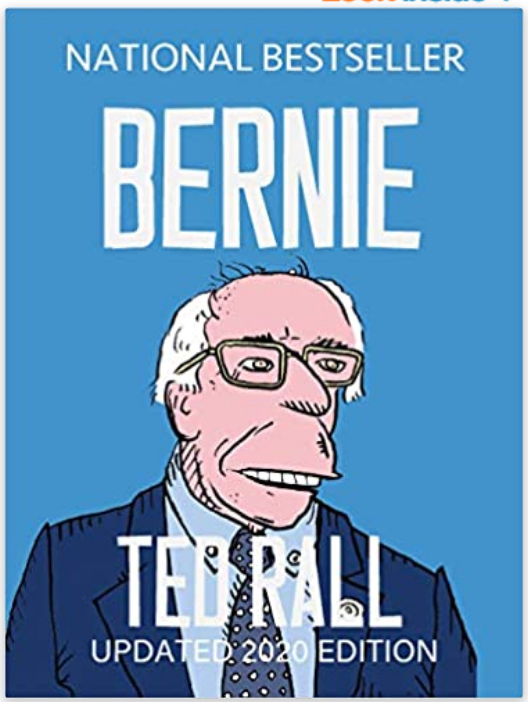 Heads up: a revised and expanded edition of my bestselling 2015 graphic biography of Bernie Sanders will be published on May 5th. It brings us up to the present primary campaign and includes 24 brand-new additional pages of artwork.
Heads up: a revised and expanded edition of my bestselling 2015 graphic biography of Bernie Sanders will be published on May 5th. It brings us up to the present primary campaign and includes 24 brand-new additional pages of artwork.
“Bernie” remains the only comprehensive biography of the Vermont senator and Democratic presidential candidate. Normally I would send you to your neighborhood independent bookstore but given the fact that the coronavirus crisis has closed all of those nationally, probably the only place you can reliably get it is via Amazon. Currently Amazon is not shipping box very quickly but they will be sending them out using some of the 100,000 new workers that they’re hiring.



